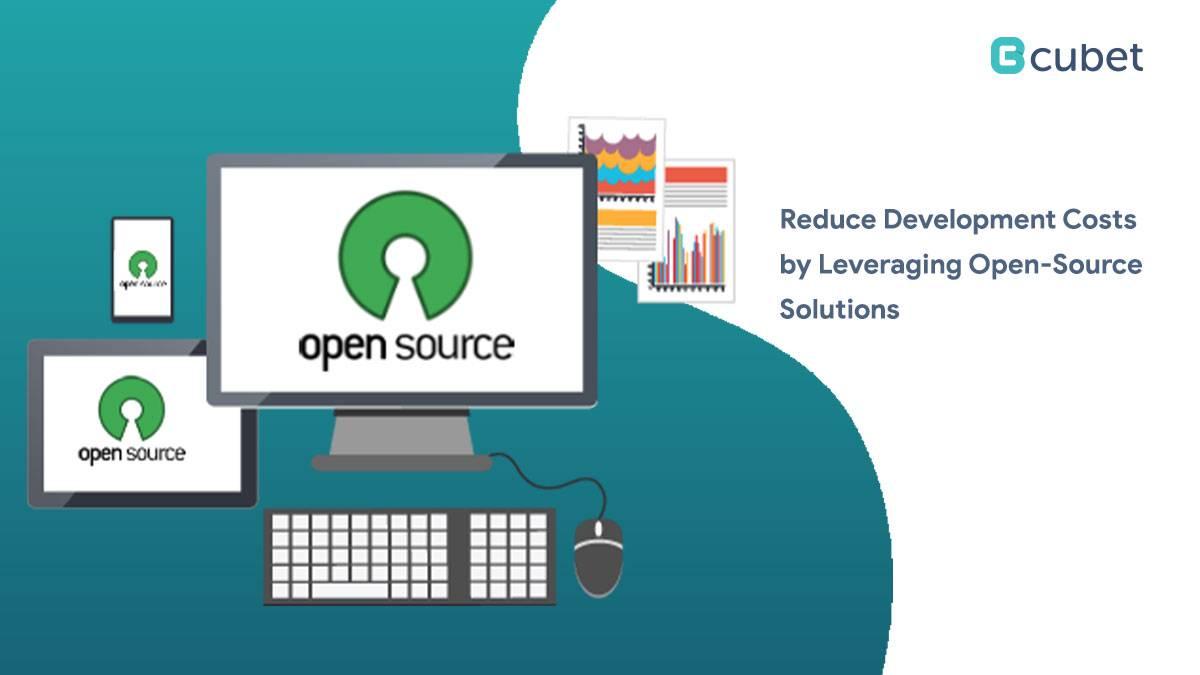How to Reduce Development Costs by Leveraging Open-Source Solutions?

Software development is a complex task, and you can hire a software development company for the development process.
Besides, the software development project comes with a preset budget, and you can’t go overboard with the cost part. However, it is possible to – keep the project costs down by adopting innovative technology and engaging experts.
Moreover, a documented and meticulous approach can help to deliver top results that are also cost-effective. You can opt for open-source solutions to manage the variables that will help foster the best quality within a time frame and, of course, the proper budget. To get things done better, you can trust open-source solutions and technology.
What is open-source software (OSS)?
Open source software is software in which the source code is available for anyone to modify, inspect and enhance. Unlike the closed-sourced version, open-source software is developed publicly by a group of developers that release it by stating a license on how it can be used.
Source code is a part of the software that computer users won’t be able to see. The programmers can edit or change how a piece of software works. Programmers can add new features or fix parts in the software or codes.
The Pros and Cons of OSS:
- You can freely download open-source software, including the source code.
- It allows flexibility and experiences different OSS. Besides, free trials with commercial software can help to reduce the buying risk.
- It grants direct access to source codes, allowing the DevOps team to customize the OSS components. The best part is that it can lead to innovation.
- People outside the project can share their thoughts and ideas for improving the software. New ideas can be used – based on the needs of the users.
- Open-source software solutions can help companies recruit top talents.
- Companies can choose open-source applications and see what is popular in the OSS community.
Open source software is not free software as people like to believe. There are many cost factors that companies may have to consider before choosing open-source software.
Also, the software requires someone to learn and manage the software with the correct precision. However, some open-source projects have paid maintenance and support, so you can always pay for the support services or the team.
But the guaranteed support is not always unique to open-source software. If the project is new or less popular, it may not have community support. There is no one to blame if something goes wrong with the project.
How to leverage OSS to the maximum while reducing development costs to a minimum:
1. Upfront Costs
Open-source software (OSS) and free open-source software (FOSS) are cost-effective because there are no licensing fees, and they are readily available. Alternatively, building software from scratch is costly and time-consuming. OSS is free from :
- Overload of functionalities, capabilities, and bundling that clients seldom use
- Closed system deployments
- Vendor lock-in or exclusive technology access, as everything is open source, you enjoy burgeoning community support daily for various codes and bugs.
2. Community Support
Community support is the biggest advantage of OSS. It often supports a wide range of community users and developers. Also, these people dedicate and invest their attention and time, ensuring the project results are amazing.
The best part is; they encourage other developers and users to support the software needs. Open source does not possess a user manual and access to experts but still offers the best support. With urgent issues, you will get support on time.
3. Security & Stability
OSS is public, and that’s why the community scrutinizes it. When analyzed, it can lead to secure and stable software support. Open-source software is more secure than Licensed software.
Bugs and other issues are caught as soon as they are detected, which saves time. However, this is not the case with other commercial software.
There are software companies and large enterprises that can take months or days to deal with the vulnerabilities or bugs in the software. Open-source software provides you with the proper stability and security.
4. Flexibility & Control
If the software is open source – you can modify the software to fit your project needs. You don’t have to build the software from scratch. You can expect more customization and control than traditional or proprietary software.
Moreover, OSS is about flexibility so that software users can benefit from its freedom. Unlike commercial software, where you must adhere to vendors’ limits and restrictions, open-source users have complete control over the software. Also, OSS is not confined by a rigid user agreement.
5. Speed & Efficiency
You can download and start using the OS in one go, so the acquisition process is faster. Moreover, eliminating contracts, purchase orders, and licensing fees can shorten the implementation timeline.
6. Innovation & Growth
The best part about OSS is; it can provide a gateway to innovation and create new business opportunities. Because any person can access source code, the software can evolve continuously.
Moreover, anyone can contribute to making the software better without any restrictions. If the commercial company is out of business, you might lose the license or access to the software, but this is not possible with open-source software.
Conclusion
You can reduce your project development cost by leveraging open-source solutions based on your needs. You can consider the long-term cost of the project.
While the upfront costs are low, if your project requires a vendor or a team to handle maintenance and support – it will become a long-term investment.
There are many situation-dependent factors you can consider before you choose open-source development. The most important one is; you can reduce the cost of your project.